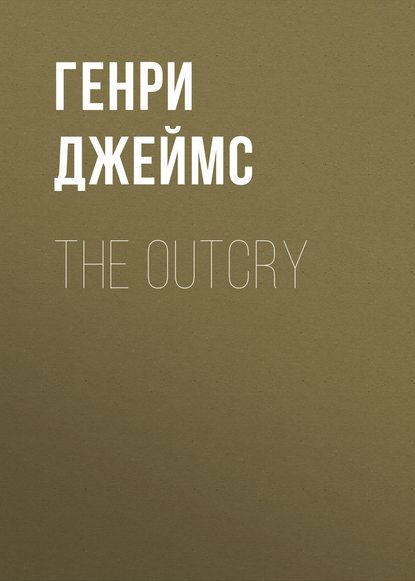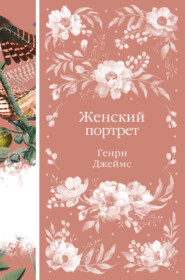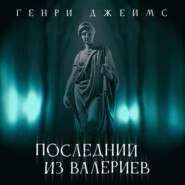По всем вопросам обращайтесь на: info@litportal.ru
(©) 2003-2025.
✖
The Outcry
Автор
Год написания книги
2018
Настройки чтения
Размер шрифта
Высота строк
Поля
“Well, I guess it’s enough for me,” Mr. Bender contributed, “that your ancestors knew enough to get ‘em!”
“Ah, that doesn’t go so far,” cried Hugh, “unless we ourselves know enough to keep ‘em!”
The words appeared to quicken in a manner Lord Theign’s view of the speaker. “Were your ancestors, Mr. Crimble, great collectors?”
Arrested, it might be, in his general assurance, Hugh wondered and smiled. “Mine—collectors? Oh, I’m afraid I haven’t any—to speak of. Only it has seemed to me for a long time,” he added, “that on that head we should all feel together.”
Lord Theign looked for a moment as if these were rather large presumptions; then he put them in their place a little curtly. “It’s one thing to keep our possessions for ourselves—it’s another to keep them for other people.”
“Well,” Hugh good-humouredly returned, “I’m perhaps not so absolutely sure of myself, if you press me, as that I sha’n’t be glad of a higher and wiser opinion—I mean than my own. It would be awfully interesting, if you’ll allow me to say so, to have the judgment of one or two of the great men.”
“You’re not yourself, Mr. Crimble, one of the great men?” his host asked with tempered irony.
“Well, I guess he’s going to be, anyhow,” Mr. Bender cordially struck in; “and this remarkable exhibition of intelligence may just let him loose on the world, mayn’t it?”
“Thank you, Mr. Bender!”—and Hugh obviously tried to look neither elated nor snubbed. “I’ve too much still to learn, but I’m learning every day, and I shall have learnt immensely this afternoon.”
“Pretty well at my expense, however,” Lord Theign laughed, “if you demolish a name we’ve held for generations so dear.”
“You may have held the name dear, my lord,” his young critic answered; “but my whole point is that, if I’m right, you’ve held the picture itself cheap.”
“Because a Mantovano,” said Lord John, “is so much greater a value?”
Hugh met his eyes a moment “Are you talking of values pecuniary?”
“What values are not pecuniary?”
Hugh might, during his hesitation, have been imagined to stand off a little from the question. “Well, some things have in a higher degree that one, and some have the associational or the factitious, and some the clear artistic.”
“And some,” Mr. Bender opined, “have them all—in the highest degree. But what you mean,” he went on, “is that a Mantovano would come higher under the hammer than a Moretto?”
“Why, sir,” the young man returned, “there aren’t any, as I’ve just stated, to ‘come.’ I account—or I easily can—for every one of the very small number.”
“Then do you consider that you account for this one?”
“I believe I shall if you’ll give me time.”
“Oh, time!” Mr. Bender impatiently sighed. “But we’ll give you all we’ve got—only I guess it isn’t much.” And he appeared freely to invite their companions to join in this estimate. They listened to him, however, they watched him, for the moment, but in silence, and with the next he had gone on: “How much higher—if your idea is correct about it—would Lord Theign’s picture come?”
Hugh turned to that nobleman. “Does Mr. Bender mean come to him, my lord?”
Lord Theign looked again hard at Hugh, and then harder than he had done yet at his other invader. “I don’t know what Mr. Bender means!” With which he turned off.
“Well, I guess I mean that it would come higher to me than to any one! But how much higher?” the American continued to Hugh.
“How much higher to you?”
“Oh, I can size that. How much higher as a Mantovano?”
Unmistakably—for us at least—our young man was gaining time; he had the instinct of circumspection and delay. “To any one?”
“To any one.”
“Than as a Moretto?” Hugh continued.
It even acted on Lord John’s nerves. “That’s what we’re talking about—really!”
But Hugh still took his ease; as if, with his eyes first on Bender and then on Lord Theign, whose back was practically presented, he were covertly studying signs. “Well,” he presently said, “in view of the very great interest combined with the very great rarity, more than—ah more than can be estimated off-hand.”
It made Lord Theign turn round. “But a fine Moretto has a very great rarity and a very great interest.”
“Yes—but not on the whole the same amount of either.”
“No, not on the whole the same amount of either!”—Mr. Bender judiciously echoed it. “But how,” he freely pursued, “are you going to find out?”
“Have I your permission, Lord Theign,” Hugh brightly asked, “to attempt to find out?”
The question produced on his lordship’s part a visible, a natural anxiety. “What would it be your idea then to do with my property?”
“Nothing at all here—it could all be done, I think, at Verona. What besets, what quite haunts me,” Hugh explained, “is the vivid image of a Mantovano—one of the glories of the short list—in a private collection in that place. The conviction grows in me that the two portraits must be of the same original. In fact I’ll bet my head,” the young man quite ardently wound up, “that the wonderful subject of the Verona picture, a very great person clearly, is none other than the very great person of yours.”
Lord Theign had listened with interest. “Mayn’t he be that and yet from another hand?”
“It isn’t another hand”—oh Hugh was quite positive. “It’s the hand of the very same painter.”
“How can you prove it’s the same?”
“Only by the most intimate internal evidence, I admit—and evidence that of course has to be estimated.”
“Then who,” Lord Theign asked, “is to estimate it?”
“Well,”—Hugh was all ready—“will you let Pap-pendick, one of the first authorities in Europe, a good friend of mine, in fact more or less my master, and who is generally to be found at Brussels? I happen to know he knows your picture—he once spoke to me of it; and he’ll go and look again at the Verona one, he’ll go and judge our issue, if I apply to him, in the light of certain new tips that I shall be able to give him.”
Lord Theign appeared to wonder. “If you ‘apply’ to him?”
“Like a shot, I believe, if I ask it of him—as a service.”
“A service to you? He’ll be very obliging,” his lordship smiled.
“Well, I’ve obliged him!” Hugh readily retorted.
“The obligation will be to we”—Lord Theign spoke more formally.
“Well, the satisfaction,” said Hugh, “will be to all of us. The things Pappendick has seen he intensely, ineffaceably keeps in mind, to every detail; so that he’ll tell me—as no one else really can—if the Verona man is your man.”
“But then,” asked Mr. Bender, “we’ve got to believe anyway what he says?”
“The market,” said Lord John with emphasis, “would have to believe it—that’s the point.”

















